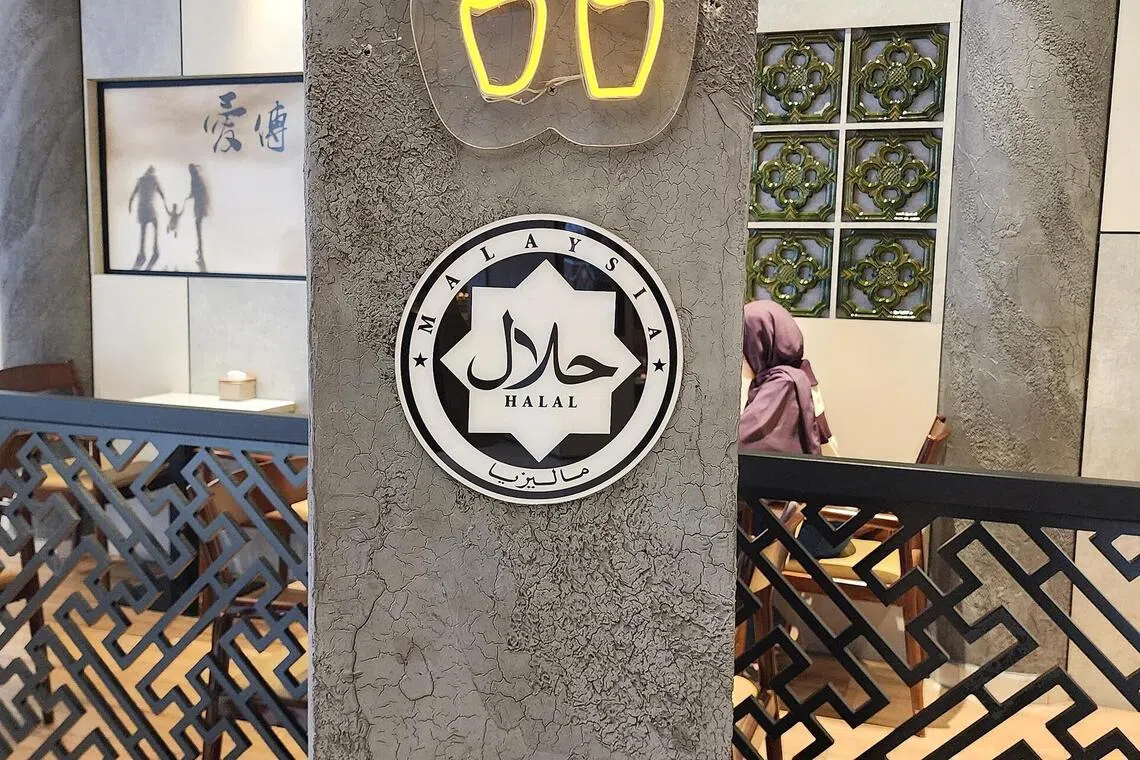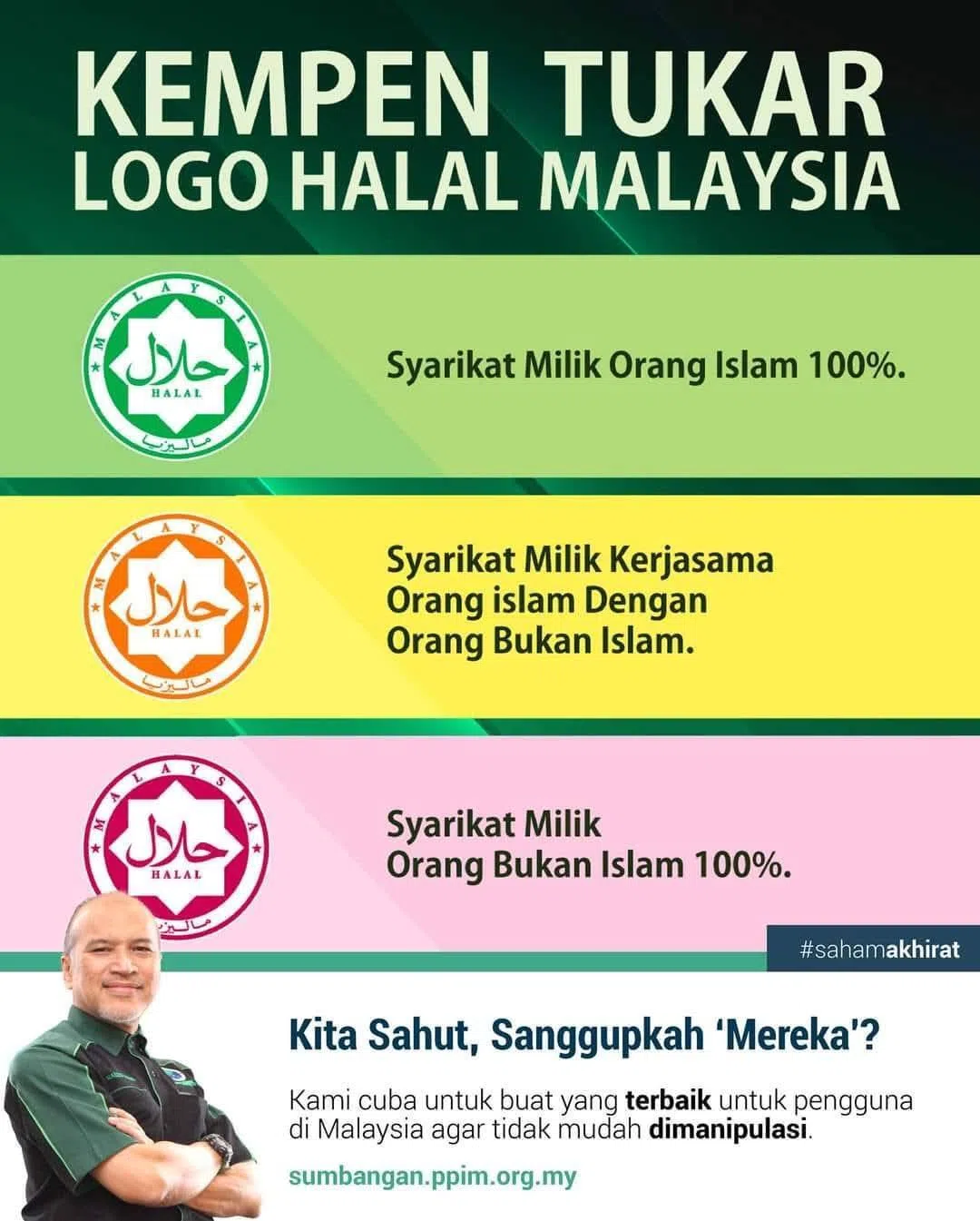Is this a halal restaurant? Malaysia takes steps to tackle unofficial labels
Sign up now: Get insights on the biggest stories in Malaysia
Follow topic:
- Muslim-Friendly Watch (MFW) disbanded after backlash against its "Muslim Choice" label intended for businesses without halal certification, highlighting consumer trust issues.
- Jakim, Malaysia's halal authority, did not recognise MFW's label, warning it could cause confusion and potentially violate trade laws, emphasising official certification's importance.
- Businesses seek halal certification to attract Muslim customers, despite costs, while authorities streamline the process; alternative labels risk undermining established halal standards.
AI generated
KUALA LUMPUR – In Malaysia, the official halal certification is meant to reassure Muslim consumers that an establishment complies with religious requirements, including being clean and free from forbidden ingredients like pork or alcohol.
However, not every outlet is willing or able to afford to pay for the certification.
Instead, some of them put up “no pork, no lard” and “no alcohol” signs in the hope of attracting Muslim consumers. A group calling itself Muslim Friendly Watch (MFW) even attempted to introduce a label called “Muslim Choice” for such establishments.
On Nov 5, MFW was forced to disband after a public backlash against its “Muslim Choice” label, drawing attention to issues of consumer trust and regulatory oversight in one of the world’s most influential halal economies.
“This move reflects our obedience to the religious authorities and our awareness of the need to safeguard the welfare of the (Muslim community) and the good name of Islam in Malaysia,” MFW said in a statement. A check with the Registrar of Societies Malaysia website on Nov 15 showed that a group called the Muslim Friendly Watch is still active.
The move came after the Department of Islamic Development Malaysia (Jakim) – the federal Islamic agency which, among other responsibilities, regulates the halal certification – said on Nov 2 that it has never recognised MFW’s label.
Jakim said that MFW, led by president Noorman Kamsani, who appears to be involved in a consumer-focused non-governmental organisation based on news reports, continued to issue the label to eateries for a fee – despite an earlier warning in August 2024 that it was causing consumer confusion.
De facto Religious Affairs Minister Mohd Na’im Mokhtar also warned that MFW may be prosecuted under the Trade Descriptions Act, should it not desist.
The episode highlighted longstanding friction between official certification and a growing patchwork of unofficial claims on restaurant signboards and menus.
Alongside Jakim’s official halal logo, Malaysian diners routinely encounter terms including “pork-free”, “Muslim-friendly” and several other variations that aim to reassure Muslim customers but do not represent formal certification.
Some of these are put up by the food and beverage (F&B) establishments themselves. In August, the Selangor Islamic Religious Department said that the use of such signs is prohibited for eateries that do not have an official halal certificate, and that it is illegal to use terms that may mislead consumers.
These labels can create uncertainty for consumers in Malaysia, home to a Muslim-majority population where halal assurance is a daily priority.
A 2024 survey by the Vodus market research company found that 69 per cent of some 20,000 respondents prioritised Jakim halal certification and the presence of Muslim employees in the business when buying food.
In Islam, “halal” means “permissible” or “lawful” under Islamic law. Halal food products must not contain forbidden ingredients such as pork and alcohol, and an animal to be consumed must be slaughtered according to religious rites.
Mr Aziff Azuddin, research director of think-tank Iman Research, said the Jakim certification is particularly important for established businesses and serves as an indicator that an eatery is “religiously safe” to eat at. This is especially as consumers are scrutinising non-Muslim-owned businesses.
Meanwhile, “unofficial labels are usually targeted at Muslim consumers who are more lax about the label but still want some baseline assurance”, he said. “It is also worth stating that Malay-Muslim consumers are also adventurous and do want to try new trends in the F&B market, and the market recognises this.”
“This is what led to the creation of these unofficial labels to cater to this specific class of Muslim consumers,” Mr Aziff told The Straits Times.
The cost of compliance
The stakes to get certified are high for those in the F&B business.
Mr Johan Ishak, the owner of a restaurant called Dim Sum and Me, is in the process of applying for Jakim certification. He said that Chinese eateries like his, in particular, need it.
“As long as there is no halal sticker, Malays normally just look and don’t go in because it looks like a Chinese restaurant,” he told ST.
“It is a must if you are a Chinese restaurant in Malaysia. If not, you will lose at least 60 per cent of the market.”
Malays make up 58.2 per cent of the population as at the third quarter of 2025, according to the Department of Statistics.
Malaysia prides itself on the standard of its halal certification. When negotiating with the United States for the reciprocal trade agreement in October

Malaysia’s halal certification is considered one of the most robust in the world.
ST PHOTO: HAZLIN HASSAN
The South-east Asian country is also a leading global halal exporter, exporting US$7 billion (S$9.1 billion) of such products in the first half of 2025. Halal products account for about 16.1 per cent of the country’s overall exports to markets such as China and Singapore, according to Deputy Prime Minister Zahid Hamidi in September.
Dr Aiedah Khalek, a senior lecturer at Monash University Malaysia, said the country’s certification remains among the most robust globally as it is supported by clear policies and consistent standards. It is integrated with global quality and hygiene benchmarks such as the ISO ones.
Obtaining Jakim certification is achievable but demanding, say industry players.
While the official annual halal certification fee is only around RM100 (S$30), the total cost – including compulsory compliance processes, training and consultants – can reach RM25,000 or more per application, according to halal consultant Abdul Fazmin Fakurruddin. Applications are typically processed within three to six months.
The journey involves registering a legitimate business, submitting ingredient lists, ensuring all ingredients are halal-certified, and appointing a full-time Muslim halal supervisor overseeing matters including hygiene compliance and meeting food safety requirements such as typhoid vaccination. Consultants and agents now help businesses navigate documentation and audits.
That said, requirements now are clearer than in the past.
Mr Michael Simon, who previously applied for halal certification for a cafe several years ago and is now doing so for an upcoming eatery, said the application process is more straightforward and friendlier now. “If you meet all the criteria laid out in the application form, it is much clearer and easier to get halal-certified,” he told ST.
Political dimensions of halal status
Some groups are seeking to redefine what halal certification should represent.
Political and activist groups have in the past proposed alternative halal logos. For them, it is not enough for a product or business to be certified halal – it must also be made or owned by Muslims.
In 2024, the Islamist Parti Islam SeMalaysia passed a motion at its annual congress vowing that it would instruct Jakim to introduce labels indicating whether goods are produced by Muslims or non-Muslims, should the opposition party return to federal power.

A poster for a previous campaign by the Malaysian Muslim Consumers Association for a halal logo with different colours.
PHOTO: PPIM/FACEBOOK
In 2022, the Malaysian Muslim Consumers Association proposed that the current halal logo carry one of three colours: green to signal a Muslim-owned business, orange for a joint venture, and red for a business owned by non-Muslims.
Jakim dismissed the suggestion as unnecessary.
Critics said such schemes risk diverting Malaysia away from internationally accepted halal protocols, which focus strictly on ingredients, processes and safety, rather than ownership.
On the other hand, the Muslim Choice issue was highly charged because it was considered an attempt by non-Muslim businesses to carve out a separate halal market, independent of Jakim, said Mr Aziff.
“This taps into existing sociopolitical perceptions that some non-Muslim businesses are willing to extract Muslim consumer money without genuinely understanding Malay-Muslim sensitivities,” he said.
He added that the creation of labels like Muslim Choice could indicate a lack of trust among some businesses in official institutions, prompting them to try to create their own “trusted” market.
Not all Muslims are strict about Jakim certification, however.
One consumer, who wished to remain unnamed due to the sensitivity of the topic, told ST they are fine with “pork free” or “Muslim-friendly” labels, as long as the outlet is transparent about ingredients and sourcing.
On Jakim’s role, the consumer said: “Any system can be influenced or manipulated when money and human factors are involved. The certification helps ease the mind. But many people, including myself, now rely more on our own judgment than depend fully on a single authority.”
Sign up for our weekly
Asian Insider Malaysia Edition
newsletter to make sense of the big stories in Malaysia.


